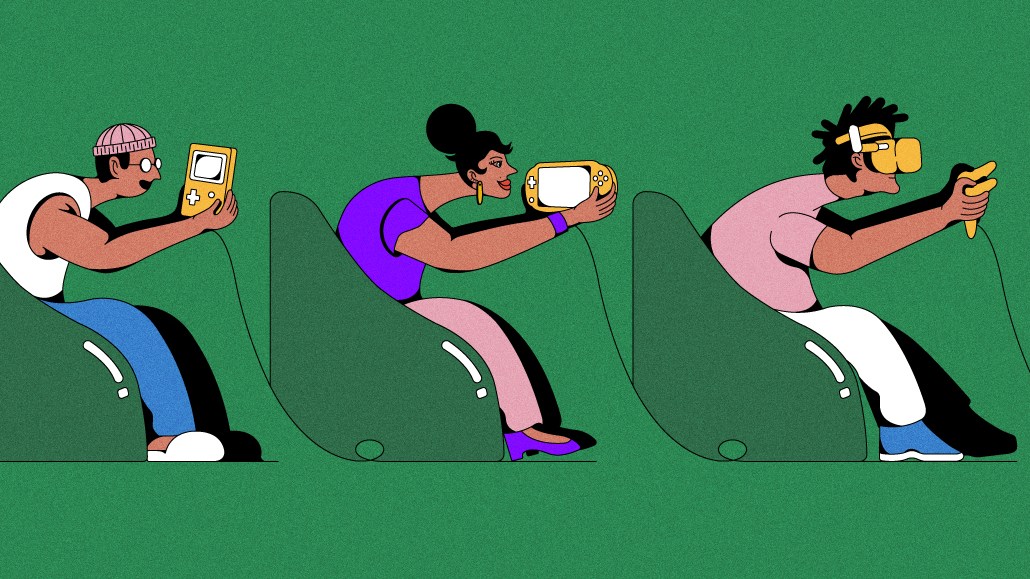Secure your place at the Digiday Media Buying Summit in Nashville, March 2-4
How PGL used influencer co-streams to supercharge esports viewership

Last month, the esports company PGL enlisted gaming influencers to co-stream a “Counter-Strike” tournament — and more than doubled the event’s viewership as a result. The move shows how influencer co-streams could help rejuvenate fans’ interest in an increasingly beleaguered esports industry.
Based in Bucharest, Romania, PGL has operated esports tournaments since 2002, largely within the “Counter-Strike” scene. For its latest event, a March 2024 “Counter-Strike” major in Copenhagen, the company endorsed over a dozen official watch parties hosted by gaming livestreamers such as Felix “xQc” Lengyel and Jaryd “summit1g” Lazar. The event also boasted sponsorships from brands including Secretlab, 1xBet and Displate.
“Unlike how Riot Games has done an incredible job of curating a watch party co-streaming ecosystem that contributes enormous value from players and streamers back to Riot, no one had been doing this in ‘Counter-Strike,’” said Rod “Slasher” Breslau, an esports consultant who organized the co-streaming initiative for PGL. “Not any of the major tournament operators, including and especially ESL/FACEIT Group, had been doing any outreach at all to the biggest streamers.”
After years of unfettered growth spurred by the COVID-19 pandemic in 2021 and 2022, the esports industry has come back to earth in 2023, with publishers such as Activision Blizzard and Riot shedding staff amid decreasing viewership and mounting skepticism from investors. By leaning into official influencer co-streams, esports companies are looking to secure a lifeline to help keep their audience numbers growing, taking advantage of the increasing prominence of individual influencers within the online gaming and esports community.
The livestreamers re-shared the event’s official broadcast on their personal Twitch and YouTube channels — and caused its viewership to jump massively as a result. Co-streaming viewership accounted for more than 60 percent of total hours watched during the event’s final day, according to data shared with Digiday by Stream Hatchet. Viewer engagement around co-streams was also considerably higher than engagement around PGL’s official streams, with 82 percent of co-stream viewers on Twitch participating in the stream’s chat discussion, compared to roughly 18 percent of official-stream viewers.
“We’re excited about the possibilities of this growth for the entire ecosystem,” said PGL social media coordinator Vlad Ispas. “By opening up more opportunities for co-streaming, we’re inviting a broader talent lineup to share their passion, insights and takes on the games we love.”
It’s no secret that influencer co-streams can help juice up esports broadcasts. Ubisoft’s February “Rainbow Six Siege” championship, for example, broke viewership records thanks to official co-streams by influencers such as Nicholas “Jynxzi” Stewart. Unlike some of its competitors, however, PGL was able to take advantage of the power of co-streaming without spending a penny. For February’s event, Ubisoft paid Stewart to do his official re-stream. In Copenhagen, PGL simply took advantage of streamers’ natural love for “Counter-Strike” to convince them to share the event with their viewers.
For example, the tournament’s top co-streamer was Alexandre “gAuLeS” Borba Chiqueta, a retired Brazilian “Counter-Strike” pro whose official co-stream accounted for 9,117,831 total hours watched during the weekend-long event. “I was responsible for reaching out to the biggest influencers and streamers in the industry that I know love ‘Counter-Strike’ already, and have been around in the scene for a very long time,” Breslau said.
For the brands whose sponsorships and ads form the backbone of esports companies’ revenue strategies, official co-streams represent a bit of a double-edged sword.
There’s no doubt that co-streamers’ exploding viewership numbers put esports events’ sponsors in front of more eyes than ever, and co-streamers’ high engagement numbers are sure to satisfy marketers — but most fans who tune into co-streams are doing so because they love the individual streamer, not necessarily because they are deeply invested esports fans.
“Official channels drive the viewership of the most engaged people within that specific esports — people that are more long-term viewers,” said Stream Hatchet data analytics director Alex Porcel. “But for co-streamers, there’s the other side of things, where they might have a more active community. It’s two different sides of engagement.”
Following last month’s Copenhagen major, PGL is now responsible for the top-three most-viewed “Counter-Strike” tournaments of all time in terms of peak viewership, an impressive accomplishment for an esports league operator that lacks the backing of a major publisher or sovereign nation — the financial supports that have allowed esports companies such as Blast and ESL/FACEIT Group to withstand long periods of unprofitability. PGL’s recent success shows that it could be a viable alternative beyond these larger competitors for the publishers looking to partner with third party operators to run their esports leagues and events.
Amid an industry-wide shift toward a third-party model, with publishers divesting from their internal esports departments in favor of working with vendors to run their competitive leagues, the presence of another active league operator is encouraging news for players and esports organizations across the esports ecosystem.
“Our co-streaming initiative is about building bridges to new audiences, inviting them to discover the world of esports that we’ve been passionate about for decades,” Ispas said. “It’s an expression of our commitment to growing the community and making esports more accessible and engaging for everyone.”
More in Marketing

WTF are tokens?
When someone sends a prompt or receives a response, the system breaks language into small segments. These fragments are tokens.

AI is changing how retailers select tech partners
The quick rise of artificial intelligence-powered tools has reshaped retailers’ process of selecting technology partners for anything from marketing to supply chain to merchandising.

YouTube’s upmarket TV push still runs on mid-funnel DNA
YouTube is balancing wanting to be premium TV, the short-form powerhouse and a creator economy engine all at once.








